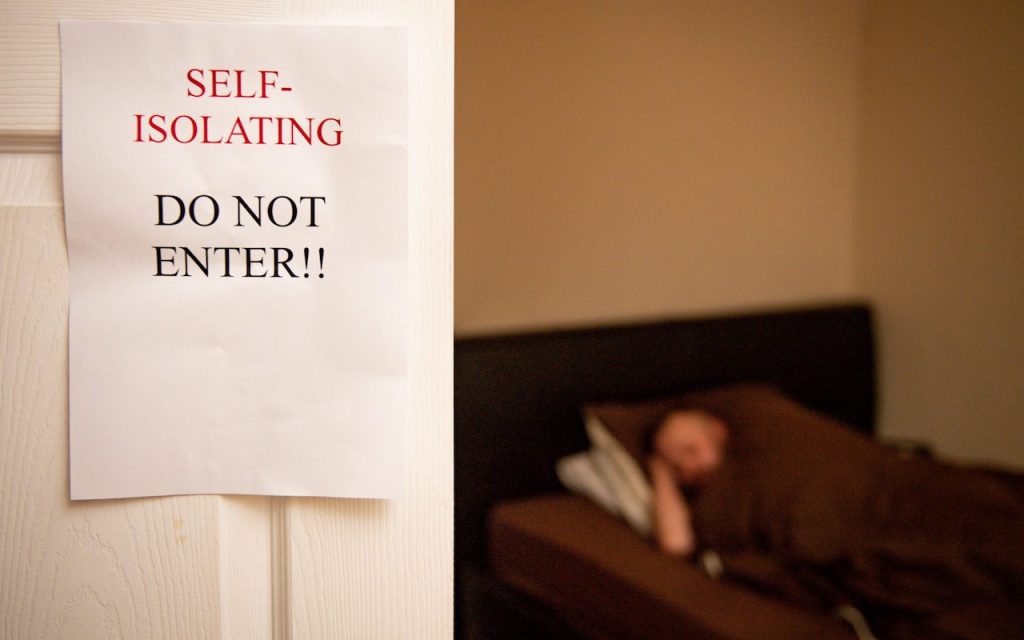Social distancing by necessity, not choice
3 min read
It's up to us all to protect those who are at risk for COVID-19. (Jacob King | PA)
By RYAN GORHAM
Staff Writer
By now, the severity of COVID-19 has settled in the minds of most people across the globe– some out of terror, some out of compassion. Those who are most at risk of dying from the coronavirus are older adults and those with asthma, but there is another group of people who are at a higher possibility of contracting the coronavirus with life-threatening risk, the immunocompromised. I am one of them.
According to the National Cancer Institute’s website, to be immunocompromised means “having a weakened immune system. Patients who are immunocompromised have a reduced ability to fight infections and other diseases.”
That means people who have certain diseases or medical conditions that affect the immune system have a much harder time fighting off diseases because their system is suppressed. People with cancer, diabetes and certain genetic disorders are considered to be immunosuppressed and there are even certain medicines or treatments that suppress the immune system like anticancer drugs, radiation therapy or an organ transplant.
Since classes on campus have been canceled, like many students, I have had to move back in with my family, and while social distancing sounds easy on paper it is much harder to do while living with five other people.Every time I touch something that someone else has recently had their hands on, I need to wash my hands to minimize the likelihood of germs spreading. I need to be very aware if I am touching my face at all times, even when I do it subconsciously.
Every time an Amazon package is delivered to the doorstep with my name on it, my parents remove the item from the package, spray it with disinfectant and place it on the ground in front of me like a discrete meeting between secret agents in a spy movie.But the most worrying thing about all of this is that some members of my family still go out to meet with their friends instead of remaining home in quarantine.
For some, remaining home all day is taxing on both their mental health and their social life. Some might even decide to go out because their age group is at a lower risk of being affected by the virus. But if you do get the virus and bring it back home, it can spread to other members of the family even if they have intentionally self-quarantined.
The Center for Disease Control’s website states that the coronavirus is mainly spread from person to person, and “between people who are in close contact with one another,” or “through respiratory droplets produced when an infected person coughs or sneezes.”
A good alternative to meeting in person is calling, emailing or chatting through video meeting applications like Skype, Zoom or FaceTime. Even writing a letter to someone is a novel way to keep in touch with people like your grandparents.
One of the simplest and most helpful things you can do to prevent the spread of disease is to wash your hands. A New York Times article by Ferris Jabr, “Why Soap Works” explains why washing your hands is crucial to containing the virus. “When you wash your hands with soap and water, you surround any microorganisms on your skin with soap molecules,” said Jabr. “The hydrophobic tails of the free-floating soap molecules attempt to evade water; in the process, they wedge themselves into the lipid envelopes of certain microbes and viruses, prying them apart.”
To prevent you, or a loved one from becoming sick, make sure to practice social distancing and only leave the house if necessary. Face masks should only be worn by those who show symptoms of the virus and if you show some of the symptoms and suspect you might have the virus, immediately get medical care.
The next time you decide to visit your friends or decide not to social distance because your age group is not at risk, think of the other people who might get sick.
It’s not about you. It never was.


